
Hispanic Heritage Month Library Posters
September 13, 2023
Navigating the Shelves: 8 Tips for First-Time Librarians
November 15, 2023How to Start a Book Club
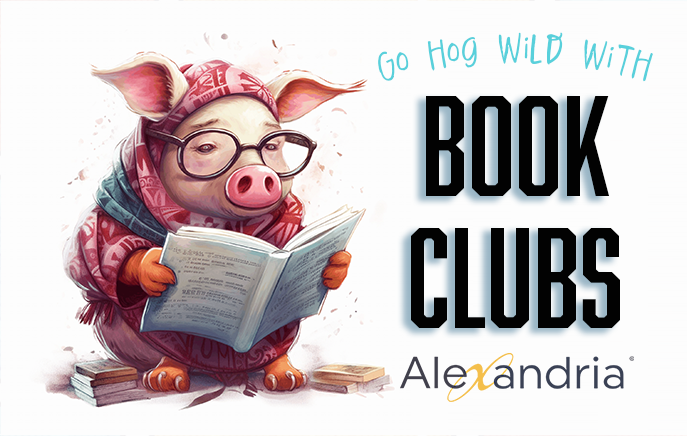
Why Start A Library Book Club?
As librarians, we love books. We are hefty readers. We are in school districts to encourage, develop, support, foster, and engage readers by interacting with books. That’s a huge mouthful of ambition, but library book clubs bridge connections from school to library, improve reading, and make magical experiences for learners.
When we focus on reading good books and add activities that will inspire a conversation about them—the themes and topics found in literature today—we are making a difference in the lives of kids.
1
Simplify Your Mission: Improve Reading
With book clubs, your aim may be to excite kids about storytelling (a lifelong skill), get them talking about and recommending literature, and create a community around the importance of reading together.
Whether you have hosted book clubs before, launched a one-book-one school read, coordinated an author visit, or even read aloud to kids in the library, you might see that book clubs can be more, far more, than you ever imagine.
As you launch, keep in mind that, no matter what, you are inspiring students to become lifelong readers— this is a Book Club’s true value.
2
Lay the Groundwork For Your Book Club
Sometimes, the first steps can be easy. Be like Mo and allow yourself to jump from idea to initiation—let your creativity soar—and definitely 'drive the bus.' Steer your event toward active engagement and let it become more than you imagined.
Start with few expectations. Let readers come in, share new books, prep activities, consider serving up a series—and you will have what is essential to get started.
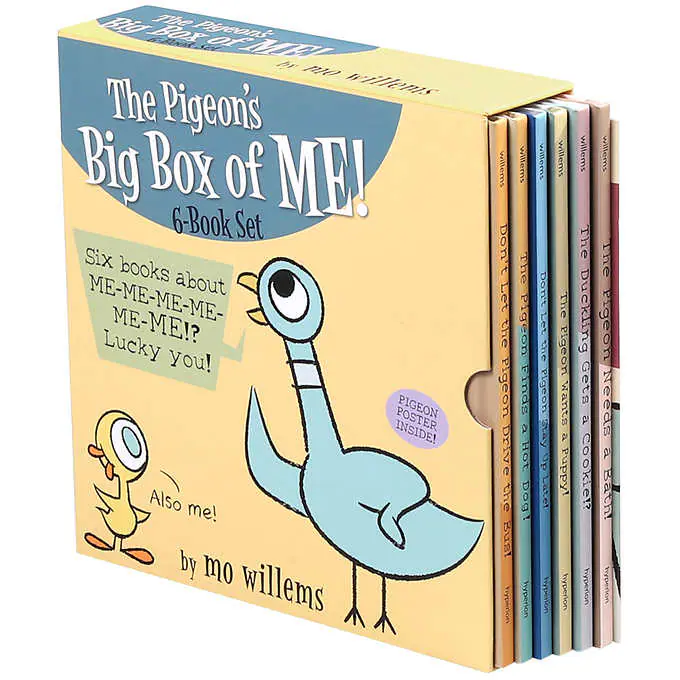
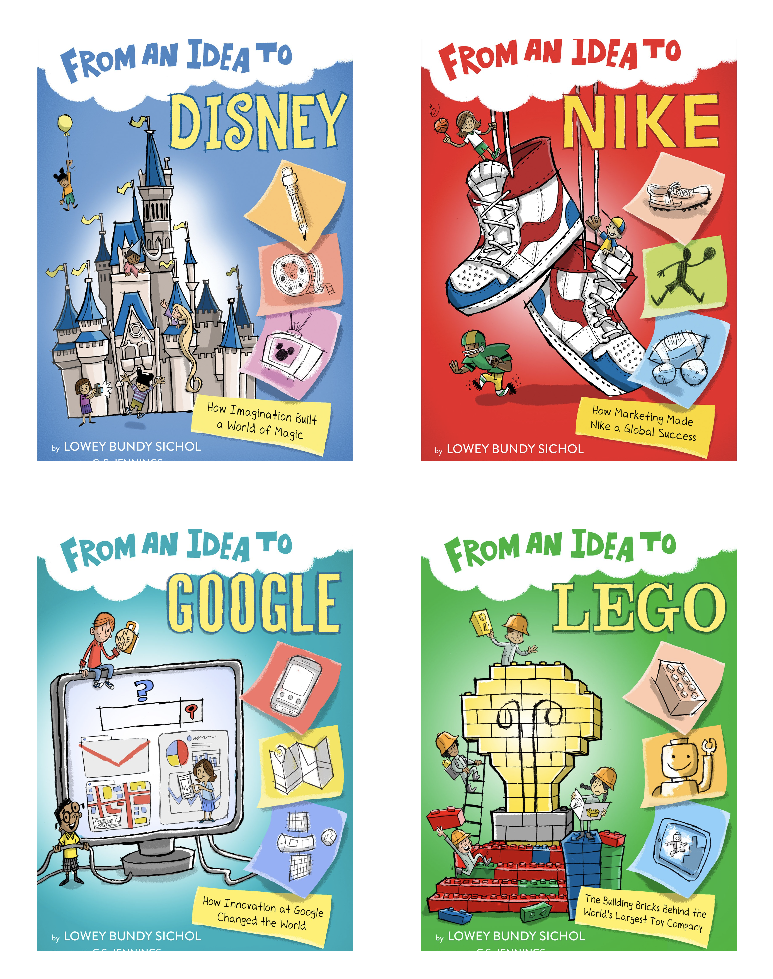
3
Voice and Choice Series Selection
Voice and choice activities are a favorite for gatherings and group activities. For this, you might find non-sequential series (From an Idea to Google; Science Comics, Don Brown's Big Ideas) and allowe students to select a book based on their interests and pose a similar set of questions for your discussions around each book.
For From An Idea to… series by Lowey Bundy Sichol, illustrated by C.S. Jennings, which included books about Google, Lego, Nike, and Disney.
Reader could take a deep, insider look at the ideas that made these companies great with 3 key questions:
- What sparked the business concept,
- What challenges did the company(s) faced during its growth period, and
- What helped the company succeed?
4
Determine Your Club's Purpose and Theme(s)
Keep your mission simple: We aim to improve and inspire life-long reading. This simplicity allows you to host a wide range of book club ideas (which, surprisingly, may or may not include reading an entire book).
Select best-of-the-best books, new releases, or host a partial read. For a first chapter challenge, you can link to online chapters and share questions and discussions on a Google Form (scavenger hunts, assessment, or bell ringers), that may be embedded on a Bulletin Boards to be completed by students individually or as a group.
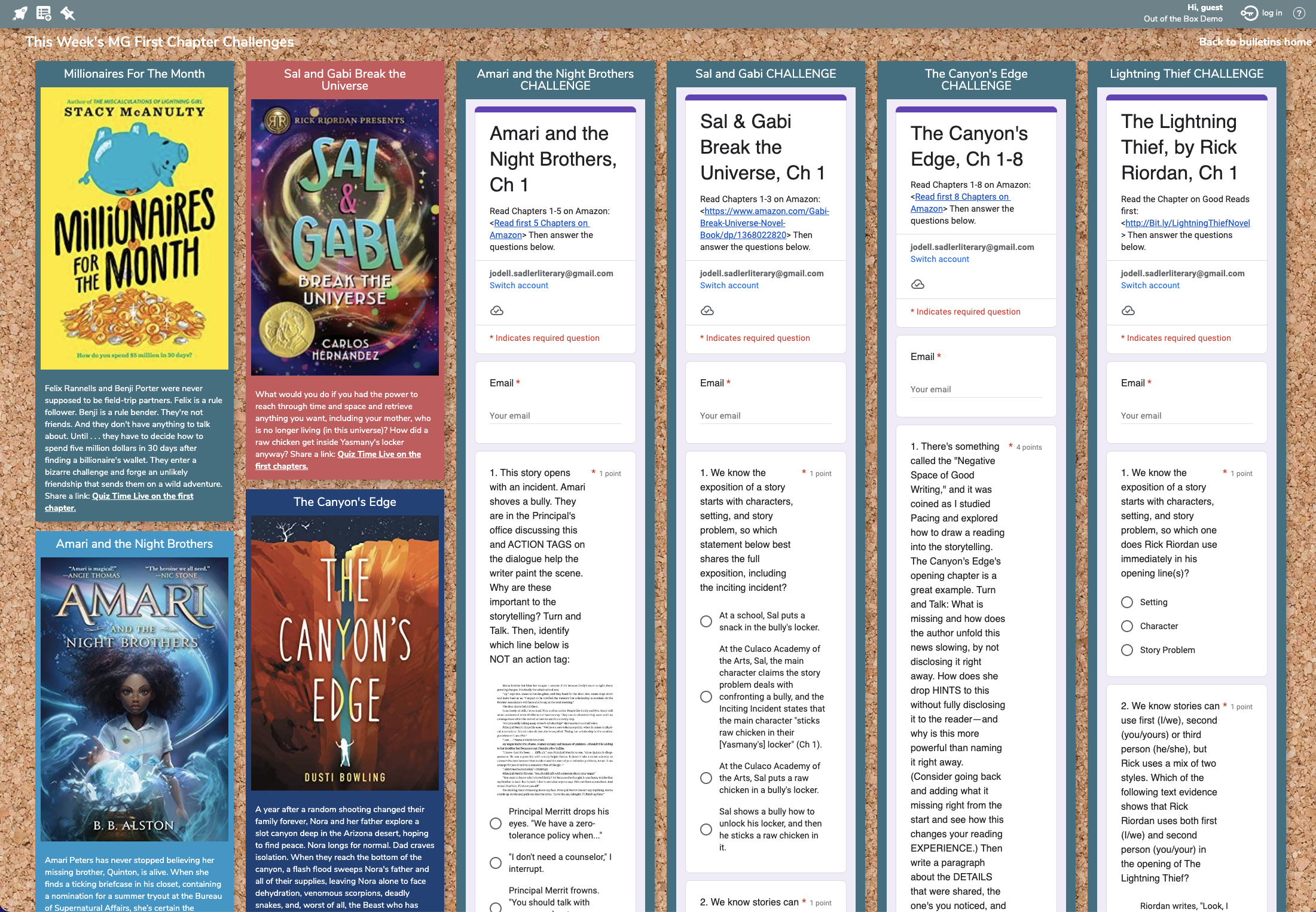
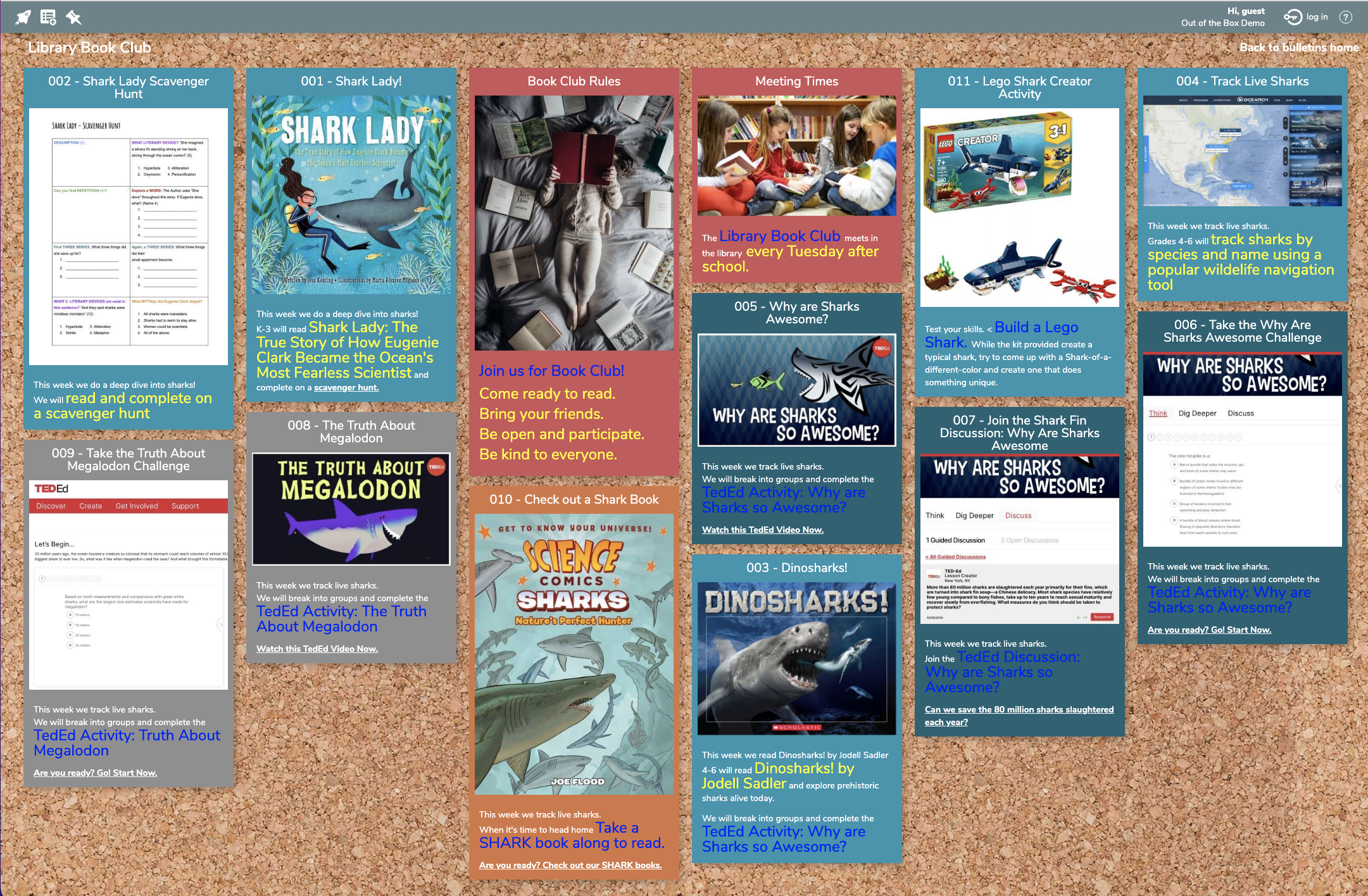
5
Post Your Club Goals and Objectives
Host your entire Library Book Club event on Alexandria's Bulletin Board and share book options, book trailers, related videos, author information, along with the meeting times, goals, and objectives for your book club. By placing this material online, you have a single shareable URL link that makes it easy to communicate club information with everyone.
If you host your book clubs year-round, you might even feature an ALEX Book Club Icon on your Search page and link this icon directly to your Library Book Club Bulletin or book club activity.
6
Perfect Your Reading Lists and Purpose
In any book club, your goal is to build experiences around books, host discussions, help kids become life-long readers—and allows kids the opportunity to forge new friendships.
What works well is to share diverse titles that allow students to gain new persectives, host a name-that-genre contest, create an ALA Award-Winner Book Tasting event.
Once you discover the perfect books, you can readily add activities, mix-in movie connections, explore topics in depth, and create group challenges or contests like asking students to read and report on an Animal Battles or Who Would Win series book and let everyone know who wins.

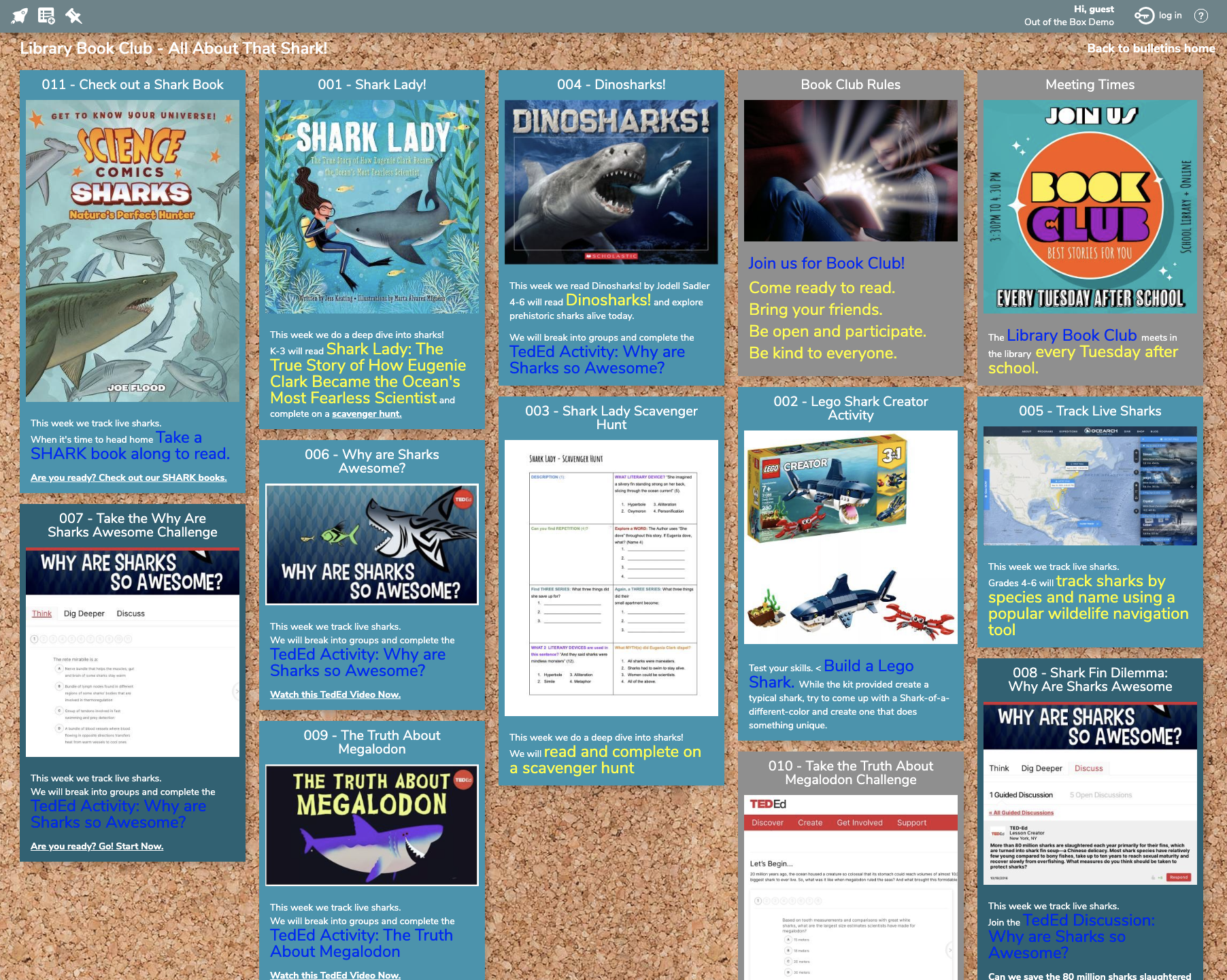
7
Connect the Right Book to the Right Audience
You can create a club for many audience levels, learner levels and share it all on one board. Number the activities and set table-by-table expectations to expand and differentiate activities for a broad range of learners.
Pre-Kinders might listen to the reading of Shark Lady and do a Lego activity while Second and Third graders read the book and work on a Shark Lady Scavenger Hunt.
Older students might read Dinosharks! and complete the Track Live Shark Activity by reporting on a particular shark and tracking its swim path.
8
Help Teachers Embrace the World of KidLit
You might select important, grade-level titles and invite some teachers to join the teen book club experience, investigating subjects and popular authors.
You might avoid bringing in that older title you loved and opt for a book that will feed the hungry minds of today’s readers.
Find a book being made into a movie like I Am Not Your Perfect Mexican Daughter by Erika L. Sánchez (which will be released on Netflix later this year).
Or, launch a new adventure by reading and discussing Glowing Bunnies!?: Why We're Making Hybrids, Chimeras, and Clones by Jeff Campbell. Explore engineering a dinosaur chicken. learn about clones, or how to lab-cultivate Pig organs for human transplants.

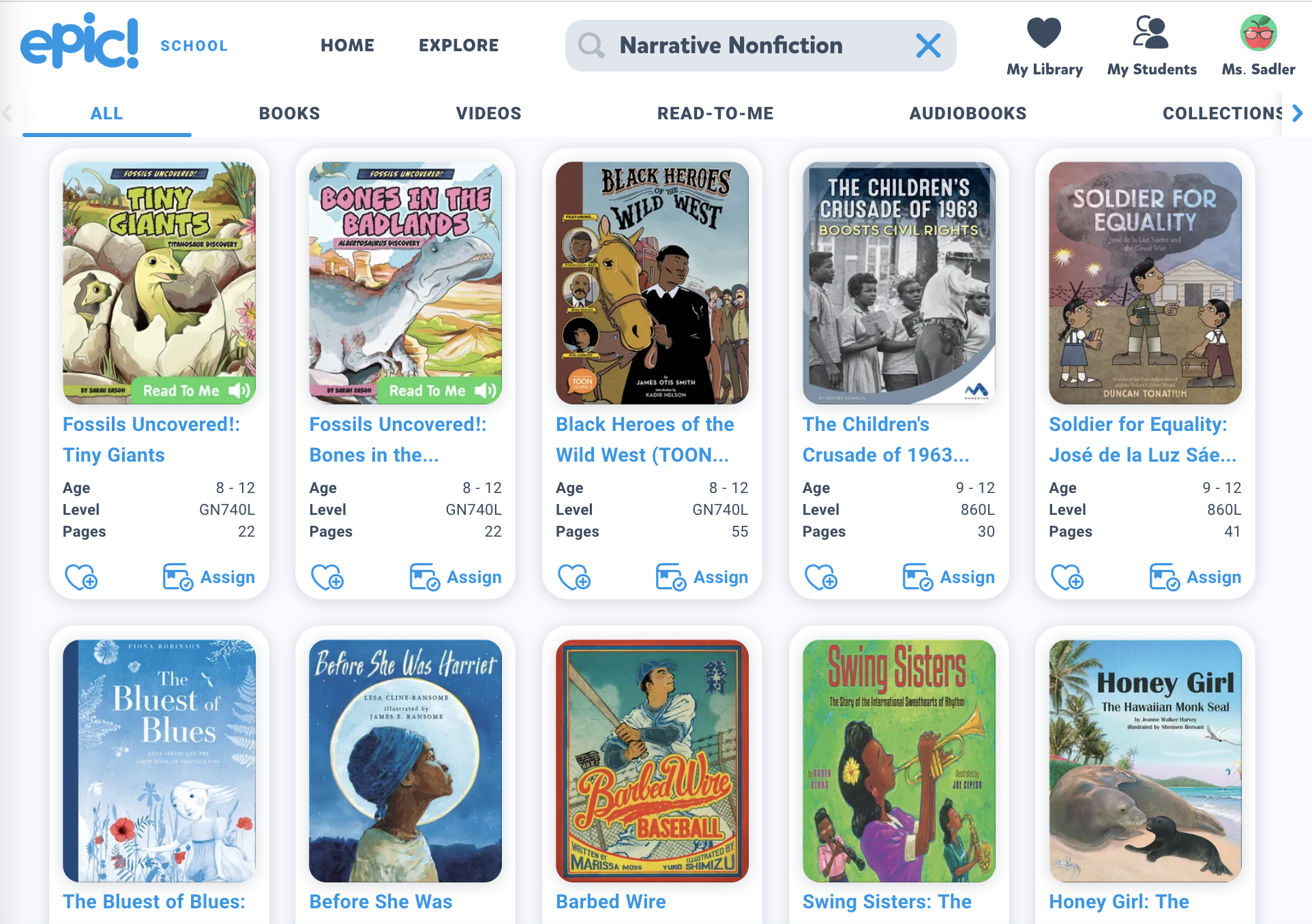
9
Gamify the Book Experience
You might consider a Genre focus. Maybe use an online source like getEPIC.com (or Gumdrop or MackinVIA or NoveList) and set up a scavenger hunts.
It's easy to select Narrative Nonfiction Biography and ask students to share how their person made a significant difference in our world.
This activity allows for book selection choice while maintaining a same mission exploration.
10
Virtual Vs. Physical Book Club Models
What is super fun is when you can set up sideline activities to go with your book titles—and you can also share these same or similar activities online. This way, students can do even more after they leave—or share and encourage others to join in.
With book club activities hosted onsite and available 24/7/365 on Alexandria’s Bulletin Boards, you can amp up the offerings: share tech tools, share puzzles, games, host virtual meetings, and more.
If you want your book club to be a part of something bigger or share common themes as other groups, you might join The 52 Book.Club challenge.
This site provides prompts like "a Book Featuring an Inheritance" (The Parker Inheritance by Varian Johnson), or "a Body Positive Message book" (Starfish by Lisa Fipps) or "Newbery Medal winner" (Freewater by Amina Luqman-Dawson)—and you can build out a full Bulletin to support this adventure.
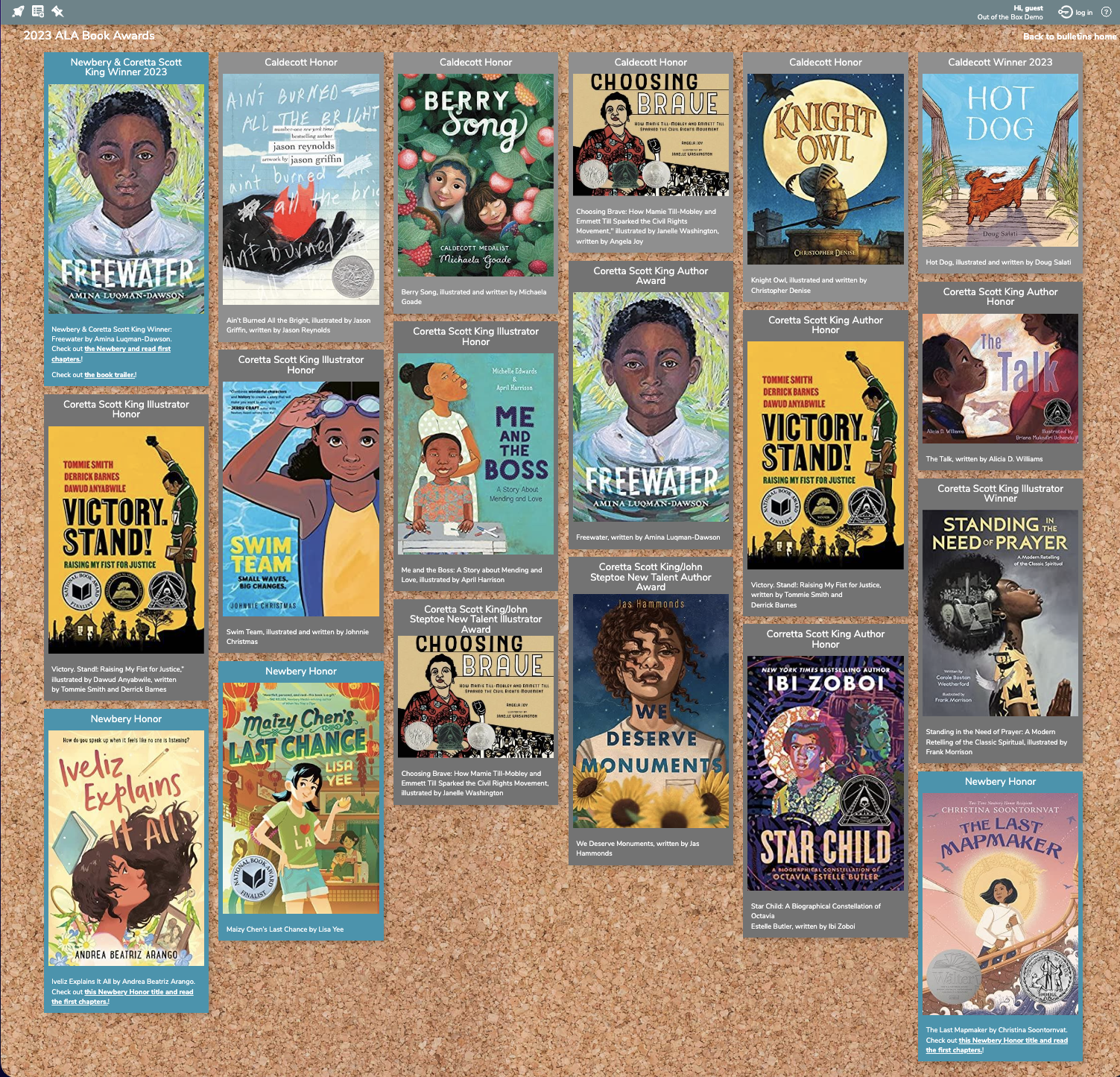
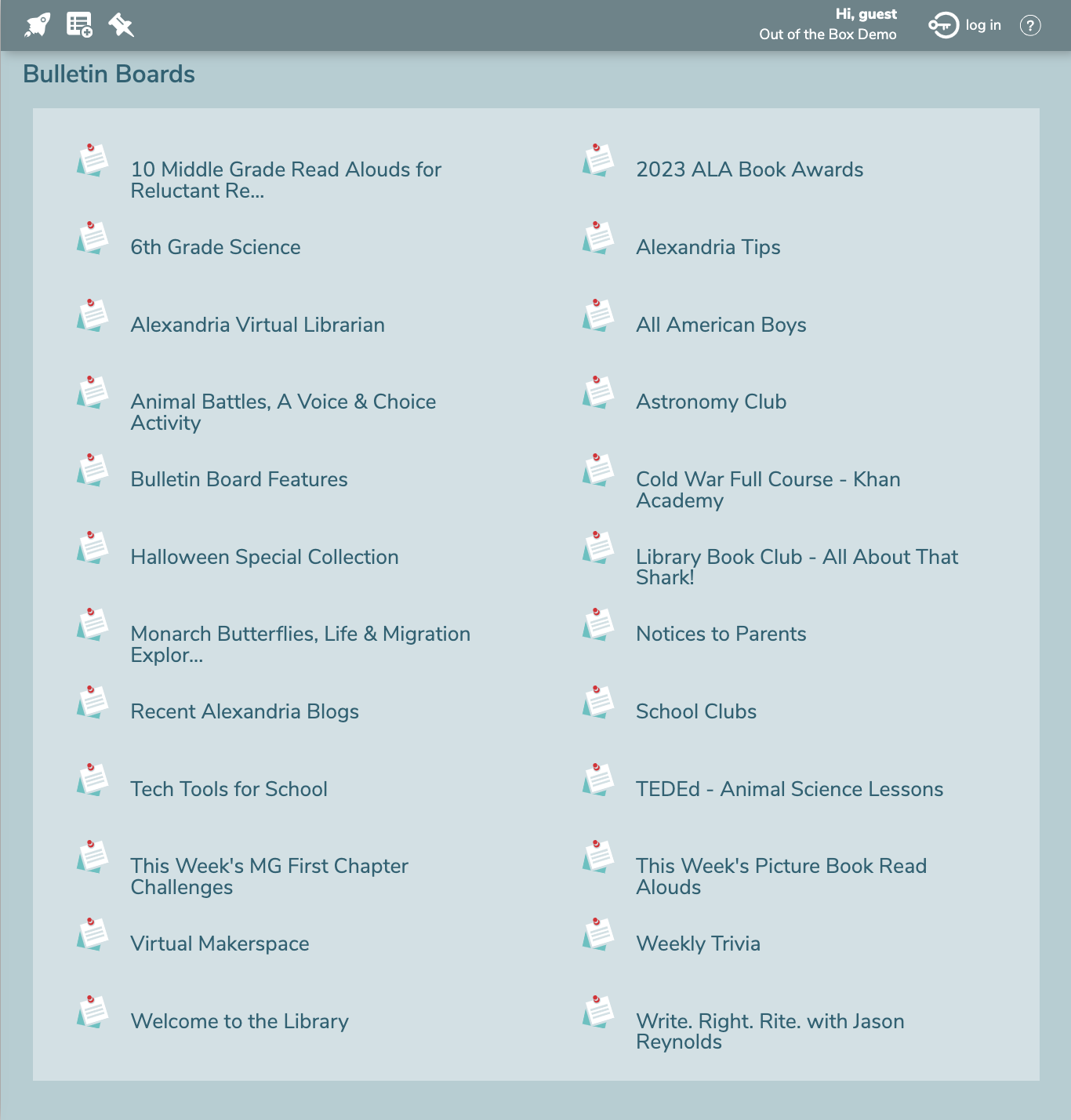
11
Ensure Smooth Operations and Management
When you place book club material online, it benefits students: 1) you can take a mentoring role and really allow kids to actively explore literature, 2) you can differentiate by learner groups, and 3) you can further excite any learner who needs another challenging activity.
In starting a Book Club, you are really forming an 'All Friends Welcome' for patrons to meet up and enjoy literature. Everyone benefits—even parents who can see all the excitement online: reading schedules, activities, deadlines, and discussions.
12
Want to Make Your Book Event More Special?
A simple, small event might be expanded by hosting authors, adding book signings, or coming up with multiple group challenges or even contests. You can easily see how a Book Club event readily turn into a Family Reading Night.
Invite diverse authors. Add a cultural bake off. Create crafts. Host a poetry challenge. Draw Everyday with JJK. Draw Graphic Novel Panels. Do Creative Writing. Host a Poetry Performance Party. Do what makes for vital hands-on literacy connections.

13
Navigating Challenges and Hurdles
Remain focused on book love. Dealing with differing opinions and conflicts, retaining and engaging members, and adapting and evolving over time means that you, as the host, must remain playful, innovative, and really free your creativity.
By establishing easy-to-remember-and-follow rules for the group makes your Library Book Club creates a very open and welcoming space to read.
Why Not Start a Library Book Club?
When it comes to starting a book club, there is one must: Book Love. Mix that with great books, sprinkle in challenges and activities, and stir in great discussions, and you will create exciting book experiences for all levels of readers. As J.K. Rowlings says, "If you don’t like to read, you haven’t found the right book." Book clubs help readers find their just-right book.
Need Help? Use our "ALL4ONE30" and let Alexandria's Virtual Librarian help you launch your book club and customize your ALEX!






